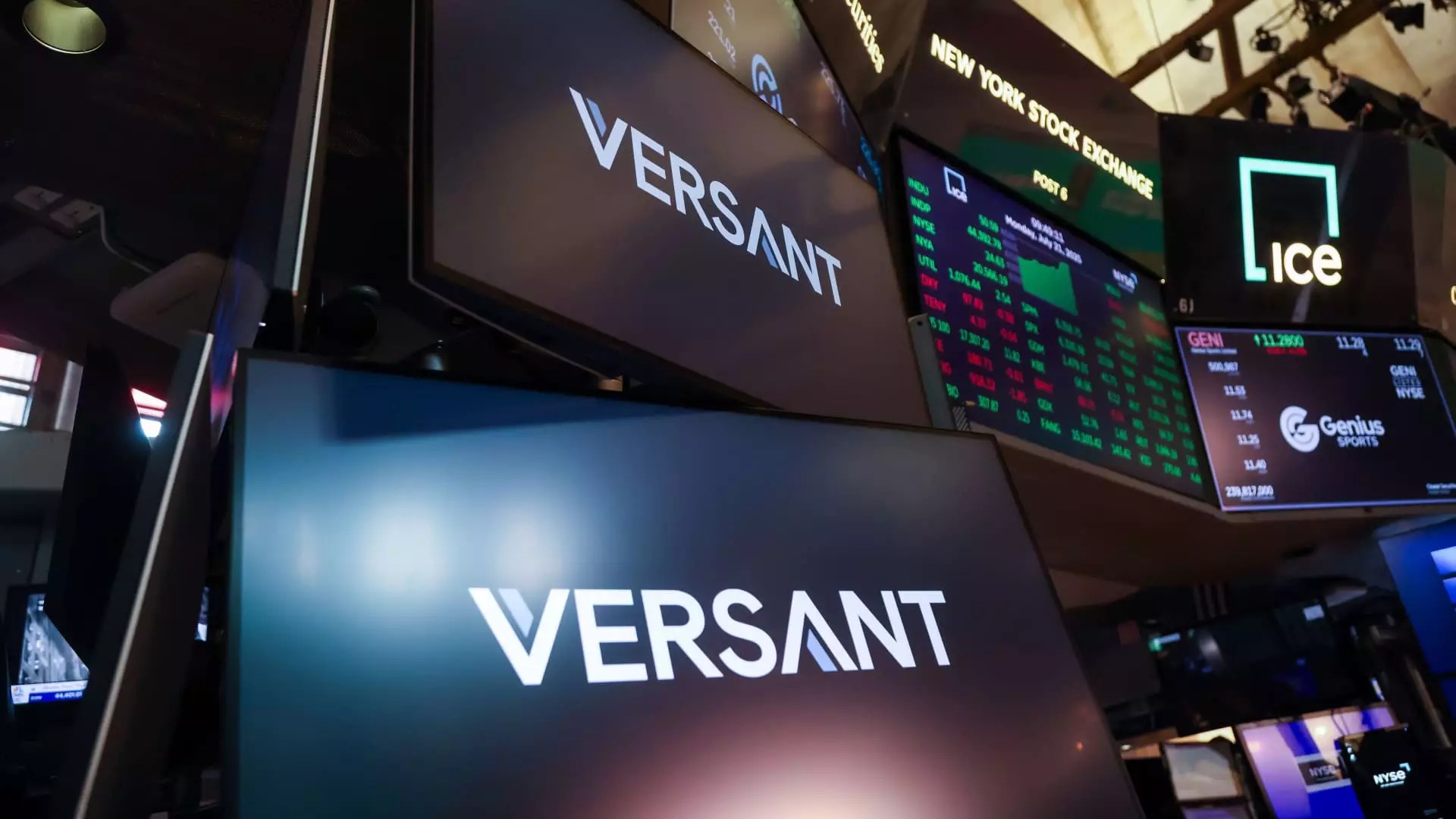The recent announcement of Versant’s board members marks more than just a corporate reshuffle—it signals an aggressive attempt by Comcast to reinvent its media empire. With the spinoff of NBCUniversal’s cable networks into a standalone entity, Versant stands poised to challenge the complacency that has long plagued traditional media conglomerates. While some see this as a strategic move to unlock value and focus on core assets, others view it as a reckless gamble that could fracture the stability of one of the most influential media portfolios in history. This maneuver reveals a desire to adapt swiftly in an era where digital dominance reigns supreme, but also exposes vulnerabilities inherent in separating integrated media and digital assets, risking a lose-lose scenario for shareholders and consumers alike.
The Leadership Weighs Heavily on the Future of Content and Digital Innovation
Versant’s leadership roster is a carefully curated mix of industry veterans and fresh minds with diverse backgrounds. Mark Lazarus, the new CEO, carries the weight of former NBCUniversal strategic oversight, tasked with transforming a sprawling content empire into an agile, independent powerhouse. His background suggests an intent to leverage traditional media expertise while embracing the digital frontier—an essential balance if Versant hopes to stay relevant. Meanwhile, prospective Chairman David Novak brings a CEO’s mentality molded by decades of fast-food and branding success, signaling that Versant may prioritize rapid growth and market capture over cautious, long-term strategy.
The inclusion of figures like Rebecca Campbell and Michael Conway further underscores a hybrid approach—bridging entertainment, consumer insights, and innovations in online content. However, blending legacy media with forward-looking digital ventures like Fandango and Rotten Tomatoes raises a key concern. Can Versant effectively integrate entertainment and technology, or will it become a fragmented entity incapable of cohesive strategic vision? The mix of legal, financial, and technological expertise on the board is impressive, but a deeper question persists: does this diversified governance structure create clarity, or will it breed internal conflicts that undermine Versant’s quest for dominance?
Market Realities and Strategic Risks: The Fragile Promise of Independence
Despite the excitement surrounding the spinoff, the move embodies a significant gamble with uncertain outcomes. The media industry’s current landscape is marked by explosive digital platforms, fierce competition from tech giants, and shifting consumer habits—factors that threaten legacy assets and traditional revenue models. By stripping away NBCUniversal’s cable network assets and assigning them to Versant, Comcast may believe it is focusing on core competencies or reducing debt burdens. However, the long-term viability of cable networks like CNBC or MSNBC hinges on their digital transition. Without comprehensive integration, Versant risks leaving these brands exposed to the volatility of a rapidly evolving digital ecosystem.
Furthermore, the timing of this move raises eyebrows. Is it a response to mounting shareholder pressure or an opportunistic repositioning ahead of an increasingly competitive landscape? Regardless, the strategic decision to create a new independent company grants Versant autonomy, but at what cost? The potential loss of internal synergy, economies of scale, and audience loyalty could leave Versant vulnerable—particularly if it underestimates how difficult it is to build a new media empire from scratch.
Questioning the Long-Term Impact on Media Diversity and Innovation
The ambition to establish Versant as a major independent media entity invites reflection on the broader implications for media diversity and consumer choice. From a liberal center-right perspective, this move could be seen as an attempt to restore competition within the media sector—breaking up a behemoth to foster innovation and new voices. Yet, there is an inherent risk of creating a fragmented landscape that benefits giant corporations wielding vast financial and technological resources. A true competitive environment demands more than just spinoffs; it requires policies and market structures that incentivize innovation and protect consumer interests.
By turning core cable networks and digital assets into stand-alone entities, Comcast may be accelerating their decline—further consolidating their market power over digital platforms and online content. If Versant fails to deliver compelling, innovative content and digital experiences swiftly, it could reinforce a cycle of mediocrity and stagnation. Meanwhile, the increased focus on corporate governance and strategic branding may distract from the core goal: delivering better, more diverse content that resonates with viewers in an increasingly polarized media landscape.
Ultimately, the establishment of Versant is emblematic of a larger question facing modern media companies: can they adapt to a digital-first world without sacrificing the stability their legacy models provided? While the leadership’s aspirations are clear—building a powerful, independent media force—the outcome remains uncertain. In a landscape riddled with rapid technological change, fierce competition, and shifting consumer expectations, this bold experiment could either position Versant as a new industry leader or become a cautionary tale of hubris. From my perspective, the move reveals a risky desire to reinvent without adequate safeguards, risking future dominance for short-term strategic flexibility. Whether this gamble pays off or backfires, one thing is certain: the game for control over media narratives and consumer loyalty is more brutal—and more consequential—than ever.


Leave a Reply